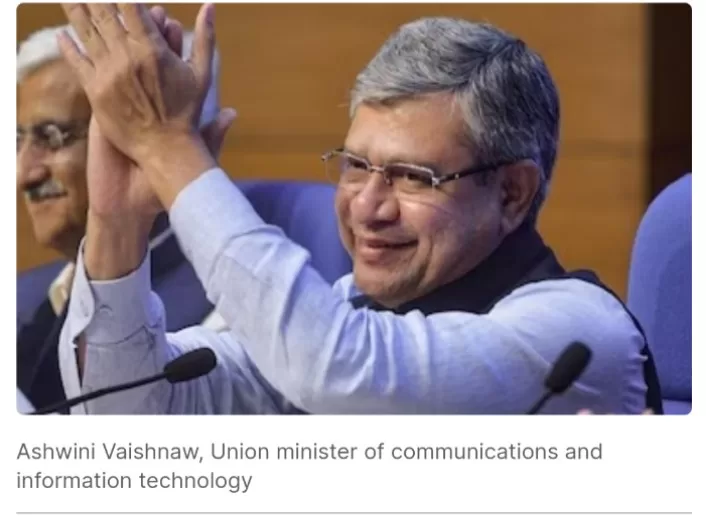In a resounding testament to India’s prowess, the Union Minister of Communications and Information Technology, Ashwini Vaishnaw, proudly announced that approximately 80% of the telecom equipment facilitating India’s 5G rollout is now indigenously produced. This remarkable achievement is coupled with the fact that these domestically manufactured products are exported to a staggering 72 countries, underscoring India’s global impact in the telecommunications arena. Minister Vaishnaw noted that Indian companies have effectively positioned themselves on par with the world’s premier manufacturers, emphasizing the unwavering commitment to quality and innovation.
These remarks from the minister follow closely on the heels of the Telecom Regulatory Authority of India’s (TRAI) recommendations regarding the promotion of Networking and Telecom Equipment Manufacturing within the nation. TRAI’s report identified that, despite the Indian government’s production-linked incentive program, manufacturing telecom hardware in countries such as China remains 12-13% more cost-effective. Nevertheless, the trajectory has been promising as numerous companies have embarked on design and manufacturing initiatives within India, subsequently evolving into global exporters of telecom equipment. Presently, products conceived and manufactured in India find their way to 72 nations, an extraordinary feat for the country.
Turning the spotlight to semiconductor manufacturing, Minister Vaishnaw revealed that advanced discussions are underway with three potential players to establish a semiconductor plant within India. The impending technological landscape is poised to witness a substantial market share dominated by 40-60 nanometer compound semiconductors, spanning applications ranging from electric vehicles to mobile towers and aircraft. India is eager to seize a leadership role in these rapidly evolving segments.
Digital Personal Data Protection Act Enforcement Timetable Challenged
Addressing inquiries about the enforcement timeline of the Digital Personal Data Protection Act of 2023, Minister Vaishnaw urged companies to embrace compliance with this pivotal legislation, emphasizing parallels with Europe’s General Data Protection Regulation (GDPR). Notably, consultations with various companies have garnered favorable responses to the law. Moreover, the draft rules are already prepared, with the rule-making process nearing completion. The minister assured the public that the necessary digital architecture for the Data Protection Board is well underway. While the Act sets forth broad data protection principles, the specifics of implementation and associated processes will be defined through forthcoming rulebooks.
Minister Vaishnaw used this opportunity to call upon social media platforms to exhibit greater responsiveness concerning issues related to child abuse content. He emphasized the need for these platforms to take responsibility for the content they host and distribute. While acknowledging the platforms’ compliance with government-issued content takedown orders, there is a growing global demand for enhanced content moderation, prompting some countries to legislate in this domain. Minister Vaishnaw urged platforms to evolve their content moderation processes to better safeguard the internet.




